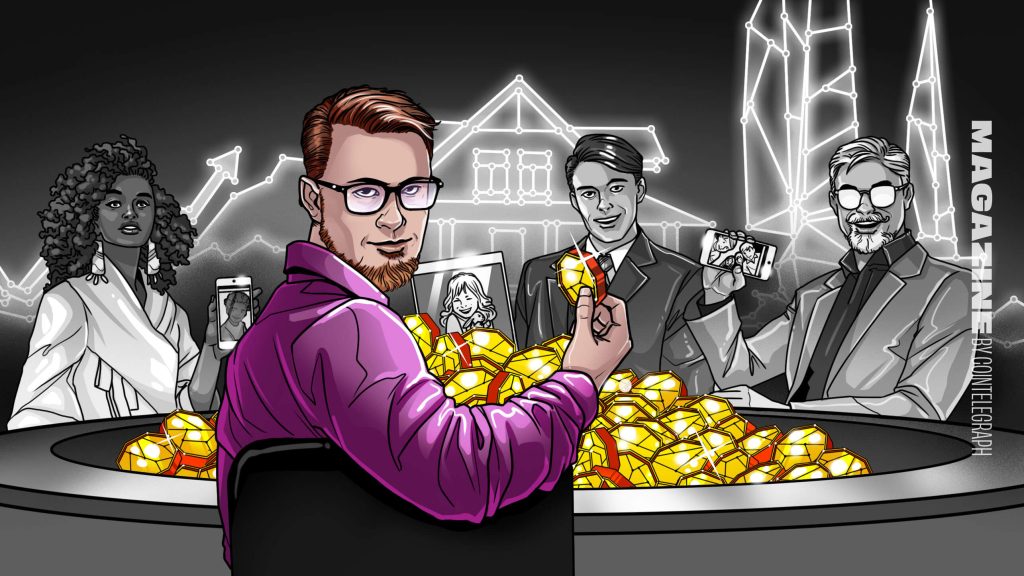So, you died.
People are sad, your body is dealt with, and the world keeps spinning. But what happens to your crypto?
Digital assets become part of your estate — and the gears of the legal system creak into motion to handle this digital body, now legally distinct from the one headed six feet under. The problem? Crypto inheritances are often less like accessing gold bullion in a safe, and more like inheriting a buried treasure — it can be entirely on the inheritor to actually find it!
This starting guide is for those planning their estate, inheritors and executors — anyone who might one day be responsible for figuring out what to do with digital wealth that doesn’t sit in a bank account.
Though legal systems vary, crypto is usually treated as property, not currency. As such, upon death, it must be inventoried and valued in the same way as precious metals and distributed according to the will — if one exists — and local inheritance laws. This will usually be done by an estate administrator or executor, who will need to figure out the estate’s value at the time of death. Taxes may also be payable, depending on jurisdiction. Once settled, the estate ceases to be.
Bitcoin inheritance: The Bitcoin Executor
A situation like this is depicted in a forthcoming independent movie, The Bitcoin Executor, featuring Graham Wardle from the Canadian TV drama Heartland. In the film, a skeptical economics professor becomes the executor of his Bitcoin-loving colleague’s estate. The deceased left behind several hardware wallets, and as the professor attempts to distribute the coins, he learns about the technology while confronting the philosophy behind it.
For those thinking about passing on their crypto, producer Christopher Arcella has a simple piece of advice:
“Find someone you can trust, and then figure out how to trust them when you are gone”
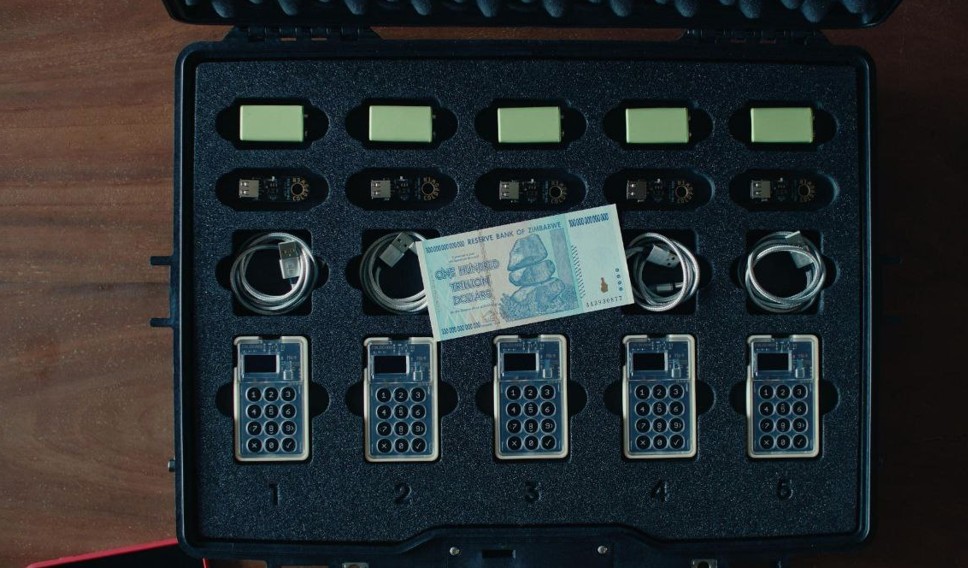
Locate and access the deceased’s crypto assets
Losing a loved one is traumatic, and sets in motion a surprising amount of logistics.
“After the initial shock, families start thinking what needs to be done — they aren’t sure if they need to contact the bank,” says Joonatan Lamsa, hedge fund relationship manager at Wealthrone. Lamsa has a decade of prior experience in banking in Finland, where he dealt with new estates on a monthly basis. The first step, he would tell them, is to get a death certificate, the provision of which results in freezing of the deceased’s accounts. “Crypto exchanges work the same way,” he says.
The first challenge in a crypto inheritance situation is often simply figuring out whether any crypto exists, and if so, how it was stored. If the deceased ever talked about crypto, there’s a chance they owned some — but unlike traditional assets, digital wealth may leave no clear paper trail.
Unless held in a financial institution via a crypto ETF like Purpose (Canada) or ProShares (US), there’s no paper trail. Exchanges don’t send letters. In the case of self-custody — whether on a phone, USB stick, or piece of paper — there is no company or institution to contact. If no one knows to look — or even what to look for — the assets may remain undiscovered and permanently inaccessible.
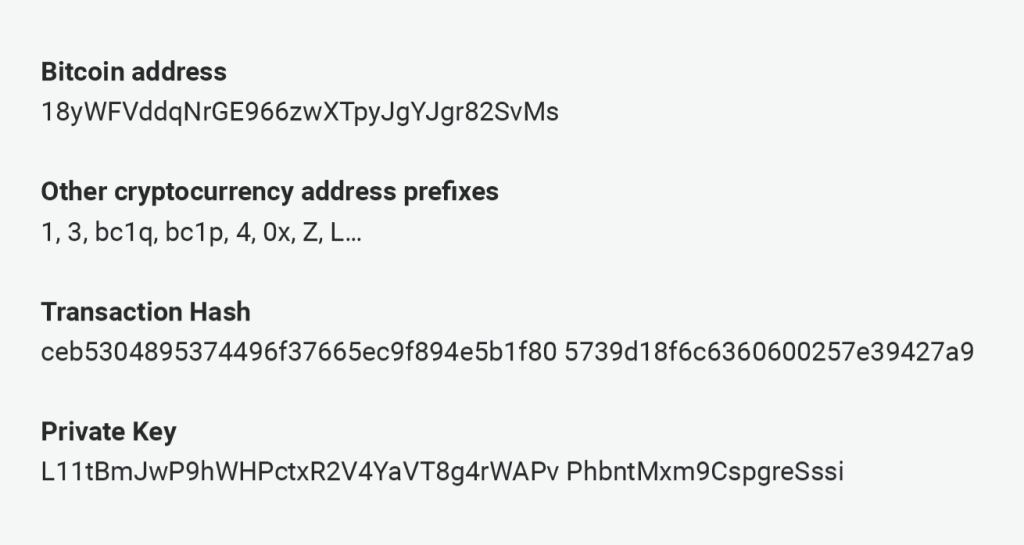
Once you’ve found signs of crypto, you’ll need to determine whether the assets were held on a centralized exchange (custodial) or in a personal wallet (non-custodial). This distinction is crucial, as it affects not only access, but also the logistical and/or technical complexity of inheritance.
If stored on a centralized and regulated exchange like Coinbase, Binance or Crypto.com, the approach is comparable to accessing a bank account, as these companies hold custody of the digital assets on behalf of the client.
Lamsa emphasises that in order for estate matters to proceed, documents need to be in order. “The death certificate, proof that you are involved with the estate, and valid ID,” he lists as the basic requirements. “The best place to start is customer service; they are used to these requests.” Once the documents are confirmed, banks, brokerages, and exchanges will share information about assets held.
If the deceased left behind login credentials, it may be technically possible to log in and transfer the funds — but that doesn’t mean you’re legally entitled to do so. In many jurisdictions, accessing someone else’s account after death — even with their password — can be considered unauthorized use unless you’re acting with proper legal authority, such as through a will or probate appointment. Some exchanges may also consider accessing a deceased person’s exchange account without informing the platform as a Terms of Service violation.
Wallet apps, browser extensions, and cold storage devices fall under self-custody — there’s no company to contact, only PINs, passwords, private keys, or seed phrases to access the assets.
Even a single wallet address can be revealing: blockchain explorers like Blockchain.info, Blockchair, or BTCscan let you check balances and trace activity. You might even spot deposits or withdrawals with a specific exchange. Similarly, an exchange, even if empty, may have records relating to where assets were sent from it. Follow the money!
How to search for a crypto inheritance
Emails:
Look for welcome messages or security alerts from exchanges like Coinbase, Binance, Kraken, Bitstamp, Crypto.com, Gemini or KuCoin. Try keywords like welcome, account, login, security, verification and device.
Devices
Check for mobile wallet apps like Trust Wallet, Exodus, Coinomi or Atomic; exchange apps; and browser extension Web3 wallets like MetaMask, Phantom, or Keplr, and check for words like wallet, crypto, blockchain, and Web3. Look for encrypted photos or files that may contain passphrases.
Password and 2-Factor Managers
Check saved credentials and 2FA backup keys — these may be stored in apps like Google Authenticator or Authy, or in password managers such as Google Password Manager, 1Password, Bitwarden and LastPass.
Emails:
Look for welcome messages or security alerts from exchanges like Coinbase, Binance, Kraken, Bitstamp, Crypto.com, Gemini or KuCoin. Try keywords like welcome, account, login, security, verification and device.
Devices
Check for mobile wallet apps like Trust Wallet, Exodus, Coinomi or Atomic; exchange apps; and browser extension Web3 wallets like MetaMask, Phantom or Keplr, and check for words like wallet, crypto, blockchain and Web3. Look for encrypted photos or files that may contain passphrases.
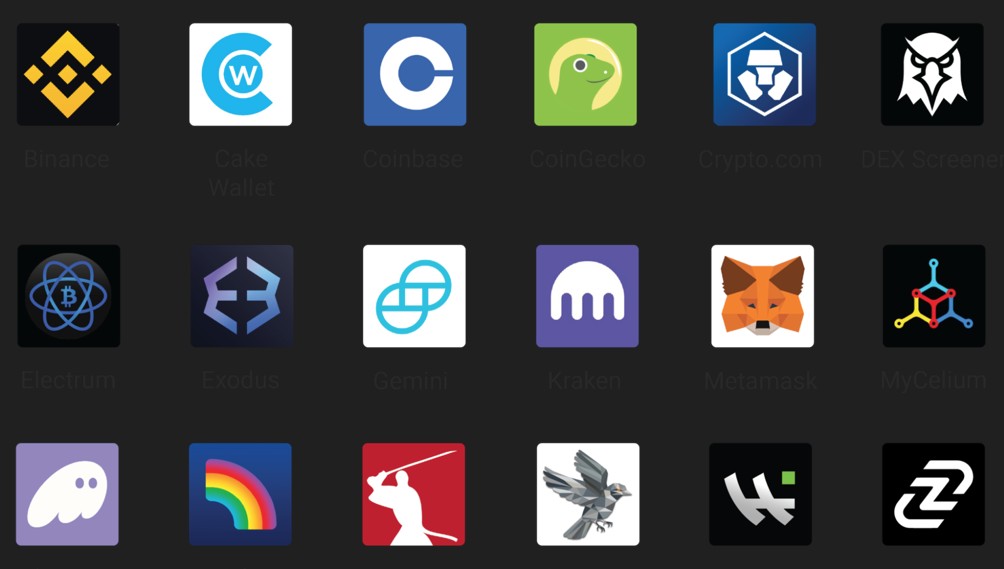
Bank vault
Some people store their hardware wallet seed phrases in a safe deposit envelope or box, so check with the person’s bank.
Records
Look through digital records, .txt, .pdf, .json, or .key files labeled wallet, seed, phrase, private, key, or backup may be especially important. When going through papers or files, be alert for seemingly random collections of 12–25 words which may be recovery phrases — these are often handwritten in notebooks. Strings of letters or numbers can be keys, addresses, or transaction IDs, and these can also be stored in the form of QR codes, including physical Bitcoin. Banking records show withdrawals to or deposits from exchanges, and tax or accounting records may hint at crypto holdings. “Many people also have safety deposit boxes, and these are natural places to store key backups,” Lamsa notes.
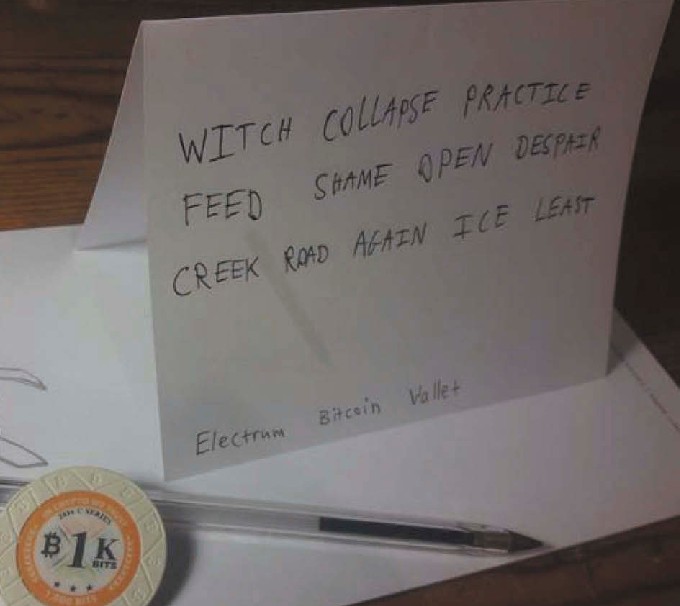
Friends and colleagues
They may have spoken about their holdings with others.
Once crypto is found and accessed, it should be transferred to a secure location — whether an exchange account or wallet controlled by the estate (or inheritor, in the case of inheritance distributions). It is important to understand what is being done or hire trustworthy professional help, as mistakes are often irreversible and can lead to loss of all funds. Test transactions — small transfers preceding a larger one — are recommended. Many noobs get scammed.
Hardware Wallets
These can appear like USB sticks, miniature calculators or monitors, with common brands being Ledger, Trezor and Coldcard. If found, they’re likely useless without a PIN code or recovery phrase, and may brick after too many wrong codes.
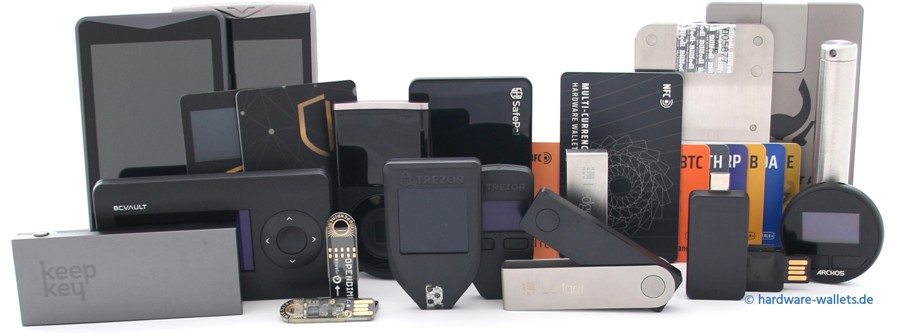
Crypto estate planning to pass on Bitcoin when you die
Write it down!
In Lamsa’s experience, people usually sort out their affairs when they know they are likely to die within a year or two, but “sometimes a person dies unexpectedly, without preparations — in these cases it can take some effort to resolve things.” An unknown account may ultimately be lost.
Wills, which can be simple and drafted without much cost, are a popular way to ensure that assets are distributed according to wishes. It is, however, important to remember that simply willing one’s crypto-assets to someone is not enough — you need to ensure that this person or someone working on their behalf can reliably locate and access the assets in question when you are permanently unavailable to answer their questions about it. There are no support tickets in the grave. If your loved ones don’t know where to click, the coins are gone.
Unclaimed coins might end up as abandoned property, perhaps eventually handed over to the government through a process called escheatment, or simply kept indefinitely by exchanges where laws allow. Lost coins, as Satoshi put it, are “a donation to everyone.”
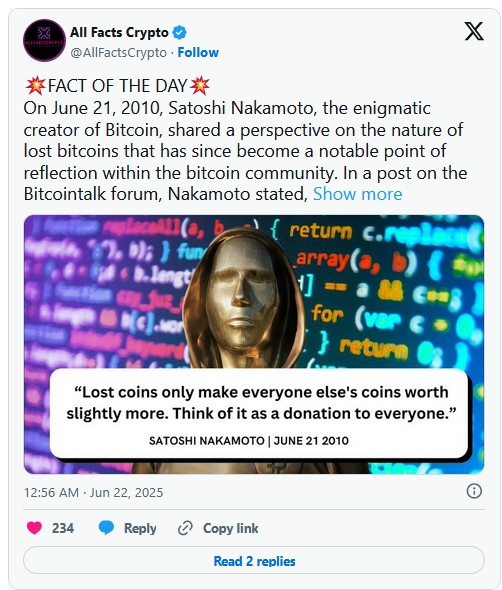
“Even in the worst case, your loved ones should be able to access your computer, files and email,” says Lamsa. He recommends keeping backup keys, instructions and printed documents in a fireproof safe — and ensuring phone passcodes are recoverable.
“For things like foreign bank accounts, private stock holdings, or limited partnerships in investment funds, physical documents with account numbers might be the only way inheritors know where to go knocking.”
Various crypto inheritance services offer to help on this front. One of these, DGLegacy, invites clients to give them a list of crypto assets as well as appoint beneficiaries or trustees, notifying them if the “heartbeat protocol” detects signs that the client is no longer present — by tracking social media and sending check-up emails and calls. Self-custody provider Casa offers an inheritance service that includes hardware devices and recovery tools.
Hardware providers like SafeKey, makers of a USB device for secure logins, have also entered the market — every customer will eventually die, after all (unless Bryan Johnson proves we can live forever, that is). They have partnered with InheritIt to create Secret Shares Distribution Protocol “so that multiple beneficiaries can safely maintain shared ownership of your crypto inheritance.”
How rich Crypto OG passes on crypto after death via trusts
For those with significant crypto holdings, trusts offer a way to pass wealth across generations — while keeping some control over how it’s used.
“We’re focused on estate planning for crypto OGs,” says Jeffery Broer of Satoru Trust, a Hong Kong-based firm. “That means people who gained their wealth in the last 15 years of crypto.” He notes that trusts date back to the Crusades, when knights entrusted their land to someone in case they didn’t return from war.
A trust allows a person — the settlor — to place assets under the care of a trustee, who manages them under legal instructions for the benefit of specific people or causes. Unlike wills, which often go through probate and can be contested, trusts offer privacy and continuity — but also come with greater complexity and cost.
Crypto holders may be wary of giving up custody, but Broer suggests a compromise: “You don’t need to entrust 100%. Even 50% is enough — the point is it’s professionally managed if something happens.”
Trusts can hold crypto via legal entities, with the trustee handling KYC, tax reporting and onboarding. Setup costs typically start around $20,000, making them better suited for estates worth $1M or more.
“Do I trust my 18-year-old to manage seven figures of Bitcoin?” Broer asks. “Or a professional to act in their best interest until they’re ready?”
Not every OG uses a trust. “If something happens to me, I have lawyers who’ll know what to do and where to get keys,” said one anonymous early holder — but I’ve put enough real estate in each of my kids’ names that even if that somehow becomes a problem, the crypto won’t matter.”
Some have no plan — and their coins may meet the same fate as Gerald Cotten’s. MicroStrategy’s billionaire CEO, Michael Saylor, plans to leave his thousands of coins to the void like Satoshi, once stating, “I’m a single guy, I have no children — when I’m gone, I’m gone.”
Plan or no plan, Arcella, producer of The Bitcoin Executor, believes simple education goes a long way. He encourages would-be inheritors to reflect on why they’re receiving crypto instead of fiat.
“It’s probably taken the person a lot of work to get to the stage of passing it on — most would want their loved ones to at least understand why they did that.”

Elias Ahonen
Grok faces bans… but 8 lawsuits claim ChatGPT use can kill: AI Eye
